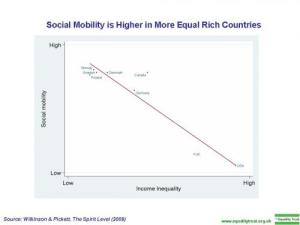
_________________________________
“Oh God,” some of you — my friends, sympathizers and global readers — might grunt. “This guy is again writing a depressing note.” Some of you might say, “Doesn’t he get it? Nobody wants to read his depressing notes anymore!”
Honestly, I can’t blame you if you felt that way. Because, feeling cheated all my life is definitely not a happy feeling. It does make me depressed. It would make you depressed too if you thought about it, and asked yourself the question, and challenged yourself to come up with the most honest, no-inhibition, straightforward answer. (Perhaps that’s why many of you do not want to talk about it.)
But I say: have courage and try it, my friends, sympathizers and global readers. Answer my question in the most mano-to-mano, womano-to-womano way (and in all other possible variations). Then come back to me and tell me if you still think I am the only person feeling cheated all my life and feeling depressed because of feeling cheated.
I would most sincerely — “cross my heart and so help me God” way — use all your honest feedback once you told me about the results of your soul searching.
But let me first tell you in a few minutes what the results of my soul searching have been.
Now, as soon as the word “cheated” gets in the mix of any conversation, the automatic knee-jerk reaction is “Cheated? So, are you talking about infidelity? Like, the husband cheating on the wife, wife cheating on the husband ( and all other possible variations)?” And then the automatic response would be, “Ah well, that’s too personal. I’m not gonna tell you about my personal life — for you to put out there for the rest of the world to see.” The response would be, “No Sir, I’m not gonna. It’s my personal life and it’s my privacy.” And who doesn’t know that America is too big on privacy? India, my other country, is also coming up fast and getting bigger on privacy. India’s elite and aspiring-elite upper middle class are getting bigger day by day on privacy — on an American mental Viagra.

But, please, rest easy. My question “How many ways have you been cheated in your life?” has nothing to do with your marital relationship or love life. So, don’t worry. I am never going to pry upon your private life. You can pump in more Viagra to get your privacy even bigger. I won’t bother you.
My question is about your non-private life: life’s other aspects that not only you, but all your immediate family members, friends, relatives, neighbors, co-workers, students, teachers, well-wishers, cursors, haters, bashers, blasters and such people can see. You might think they are not able to note and judge these elements of your life, but believe me, they can. They do. They are. So, don’t fool yourself believing that nobody knows. It’s obvious. It’s apparent. It’s transparent. It’s vivid. It’s not private at all. It’s already out there for the entire world to see.
Embarrassed? Confused? Don’t be. Take my example. It’s going to be much easier for you to understand the question.
So, the first cheat is that the leaders of my two countries — USA and India — kept telling me that if I worked hard and lived my life honestly and had a lofty goal to be somewhere, I would be somewhere. Just because I was born poor would not make me die poor: the leaders said I would be somebody. To support their claim, they gave me some evidence where a very poor man through hard work and honest living with a lofty goal actually became rich and famous. No, I’m not talking about the lottery winners. I’m talking about their examples where in America, Roger Sherman, who helped to write the American Constitution, was a cobbler; in India, a very poor low-caste woman recently became the principal of a college, and so on. Then, you have Barack Obama, et al…
Problem is, it doesn’t happen that way. People who show you those examples never tell you that they are exceptions and statistically insignificant. What is statistically insignificant? Simply put, if in a population of any random sampling, more than 95 percent of the people have one kind of trend and less than 5 percent have another kind of trend, then the trend that only happens in less than 5 percent of the population is statistically insignificant. That means, that trend is an exception: an aberration. You can’t say that trend is something that is legit or valid for the general population.
In this aspect of life, which I’d call social mobility or upward social movement, those people whom the leaders of my two countries tout as valid examples of upward social movement are too few and far between. Their numbers are so small that statistically they are absolutely insignificant. But neither the leaders nor their mouthpiece media would tell you the real story. The real story is that in this social and economic system — one that America practiced especially since Ronald Reagan and is now devoutly picked up by India and its neoliberal, IMF-sold leaders — if you are born poor, it’s very likely that you’d die poor. Or, if you’re born unknown with no pedigree or uppity country-club-type connections, you’d die more or less the same way.
That is reality. I am a living example of that reality. And I worked very hard in my life, lived honestly, and that too, with a lofty goal. I’ll tell you — kind of hesitantly — what some of those things are I’ve done in my one hard-working, honest and lofty-goal life. I must. Otherwise, you would not believe me at all.
But before that, let me show you a graph on upward social mobility — country by country. It’s important to put it here because I know some of my readers from various parts of the world are quite erudite and are not going to accept my argument unless supported by serious research. So, here we go.

The graph from the now-world-renowned book The Spirit Level shows that among all the developed and prosperous, capitalist countries, USA has the worst upward social mobility especially when graphed against income inequality (i.e., rich-poor divide) of those countries. In other words, USA has the highest income inequality (which means, the rich-poor divide is the widest) and it’s upward social mobility for the poor and middle class is practically non-existent. In India, it’s even worse: the one or two percent rich are extreme, filthy rich, while at the same time, the poor are miserably, haplessly poor. Recent IMF policies imposed by India’s ruling class are making the economic and social misery even more desperate. I wrote about it before (you can look it up here).
But our leaders and media and their advertisements always create this impression that even if you’re born poor, in this system, you can definitely be somewhere in one life.
Problem is, they’re lying. In this system — one that I’ve lived half of my life in each of these two countries working very hard, with a honest lifestyle and lofty goal — I will never be able to be somewhere. In short, the so-called American Dream propagandized in America and now in India is a myth.
In his new book The Price of Inequality, Nobel Laureate economist Joseph Stiglitz has also said the same thing. He said, the American dream is an illusion. He said, if you’re born poor in American, the “overwhelming possibility” is that you’ll stay poor. If you want to read more on it, visit this link. It has a video of the Stiglitz interview too.
Okay. Now, some other friends, sympathizers and global readers might now get restless and ask me not to get too bogged down with hard research and statistics. They might say, well, what is YOUR personal experience to support that you’ve been cheated all your life? What is the real-life hard evidence?
So, here we go. Off of books and papers and research data. On with personal life — of this no-name, no-pedigree, born-poor, die-poor’s experience.

When I quit my more or less lucrative, totally stable and highly respectable job of a biology professor in India (I wrote about that place also in this blog — click here if you’re interested to know), and later forced my wife to do the same — only to come to America, the U.S. university that responded positively to my application to be an M.Sc. student in biology, never told me about the short-term and long-term consequences to immigrate into America. They never told me about the social and economic shocks my wife and I were going to be in. Two highly respectable, young biology professors surrounded by friends, family, familiar society and a large number of admiring students and colleagues, suddenly became extremely impoverished, culture-shocked foreign students the American society (especially outside of the university campus) was unwilling to accept as one of their own. They never told us that we’d have to live with their initially-offered $380 per month to survive (in a few months, graciously, they raised my graduate student assistantship to $420 of which I would pay 10 percent as income tax — percent-wise not much different from what Romney and Ryan paid last year). Two immediate consequences (other than feeling like Neil Armstrong when he first landed on the moon — perhaps even more alienated and blue than he was): (1) we could not return to India in nine years — we had no money to pay for the airfare and other expenses; and (2) because of the shocking, sudden departure of my wife from her parents who were never ready to see their only child leave forever, her parents lost their health quickly and did not live long — and my wife the only child so close to her parents could not go to see them one last time before their death.
Okay, enough sentimental stuff. Some of you — my friends, sympathizers and esteemed global readers might say (and I’m sure authorities of that university that took me in as a foreign student would say the same, even more emphatically): well, nobody forced you to come to USA; you came on your own. Why didn’t you do your own research and find out about the consequences? Plus, aren’t you happy that you did migrate? Aren’t you grateful that because of that decision, in spite of the initial culture shocks and economic hardship for yourself and your family, you did well, got two masters degrees (one in journalism from the coveted, Ivy League Columbia University) and one Ph.D. from reputed American institutions, became so proficient in English that you now effortlessly teach your American students (and write reasonably well in two languages), brought up your children in a developed education system, and earned a lot of respect from your friends, relatives and colleagues — both in India and here in America?
I can’t deny the above. But the feeling that I was a victim of brain drain, lack of comprehensive information and shortchanging my talents, experiences and energy for slave labor (and they wouldn’t let my wife — a foreign student’s spouse — work at all), sacrificing a number of very important years of my life — is simply overwhelming. Sure, both my wife and I came a long way and perhaps improved a little bit on the economic front too (never to be rich — always stayed in the middle of the money graph). But the price we had to pay was unbelievably enormous. And to see my wife’s parents die so soon because of the departure (other than the many emotional distresses, extreme alienation and being forced to be away from our familiar world in India) was brutal.
And then, there were SO many deaths of people we knew so well and loved so much! Almost felt some of those deaths we could perhaps prevent if we didn’t leave India!
(to be continued…)
Sincerely Writing,
Partha
Brooklyn, New York
###
